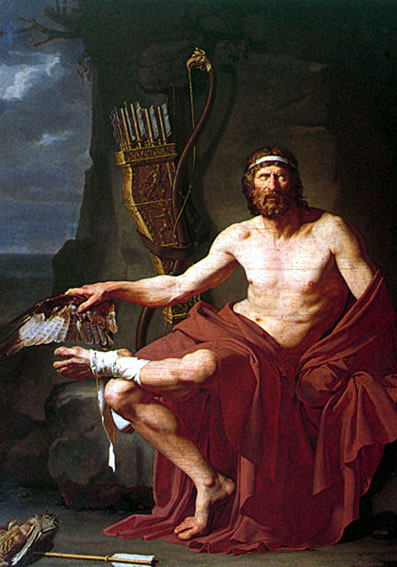Tag Archives: Sophocles
By Eldar Balta, Contributing Writer, Classical Wisdom Euripides’ Early life Born on Salamis Island in 480 BC to mother Cleito and father Mnesarchus, Euripides’ destiny was foretold in a prophecy given to his father. The Oracle fated that Euripides would one day hold the “crowns of victory”. Mnesarchus did not lose any time insisting that
The Bloodless – but perhaps Most Clever – Greek Tragedy Ever Written

By Ben Potter and Anya Leonard Sophocles’ Philoctetes, first performed in 409 BC, isn’t a typical tragedy, certainly not in the more modern perception of the genre. There is no high death toll and no evil, underhand conniving that leaves characters bitter and crushed. In a word, there is no blood. In fact, as far
Sophocles Antigone: One Woman Against the State
by Anya Leonard “My nature is to join in love, not hate” – ‘Antigone’ in Sophocles Antigone. Maybe it’s no surprise then that this individual found herself on the wrong side of the state. The powers that be probably didn’t appreciate either, that this adversary came from the oppressed class, one of the current underdogs of
Oedipus at Colonus: The Tale of Two Ancient Deaths
And so it comes to be, that all men must die. Yes, even the old ones. The great poet and dramatist, Sophocles, was approaching his own end when he imagined the glorious finale of the tragic figure, Oedipus in Oedipus at Colonus. This play is thought to be Sophocles’ final one because it was first produced
Oedipus Rex Moral or Murder?
He is one of the most tragic heroes ever found in literature; a man so unfortunate in the eyes of the gods, that he eventually blinded himself. He forces the question of fate, of self determination, of questioning society and divinity itself. Some may say this was his fatal flaw, his resistance to the life
The Ages of Ancient Greece
By Ben Potter Archaic. Classical. Hellenistic. These terms are often (and quite naturally) conflated together under the generic heading of ‘classical’, or, at the very least, ‘old’. It appears that organizing history into clear, distinct eras can be a tricky business. This, of course, is more true for the Greeks than for the Romans. This








